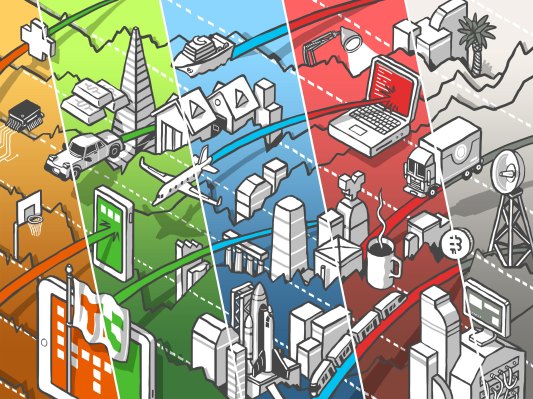W
elcome to the TechCrunch Exchange, a weekly startups-and-markets newsletter. It’s inspired by the daily TechCrunch+ column where it gets its name. Want it in your inbox every Saturday? Sign up here.
When The Cure’s frontman Robert Smith said he was “sickened” by Ticketmaster fees, many of us felt vindicated. The platform then refunded some fees, but scalpers are now at it, too, and selling entire Ticketmaster accounts instead of tickets. Is there still hope for concertgoers? — Anna
Playing monopoly
If you are longing for a Ticketmaster alternative, you’re not alone. Whether you are a fan of Taylor Swift, The Cure or Bad Bunny, reasons abound to resent the self-described “world’s leading live entertainment ticketing platform.”
Is all the hate warranted? Maybe not. Or rather, the platform might just be shouldering more than its share of responsibility. “It’s easy to blame Ticketmaster and say it’s their fault,” its former CEO Fred Rosen, who ran the company from 1982 to 1998, told CBC Radio in January. “What determines pricing is demand.”
Regulators in many countries beg to disagree. Earlier this year, the U.S. Senate questioned Live Nation, which acquired Ticketmaster in 2010, over concerns that it’s a monopoly.
As our own Amanda Silberling noted, “Ticketmaster sells tickets for 80 of the top 100 arenas in the country, while Live Nation can sometimes operate as the promoter, owner and operator of that same venue.”
It is easy to see how a monopoly could distort pricing. But even if it weren’t the case, event ticketing is still broken in many other ways, from rampant fraud to reselling that doesn’t benefit artists.
Typically, I roll my eyes when blockchain is brought up in conversation as a cure-all to whatever problem is being discussed. Way too often, it is a problem looking for a solution. But when it comes to ticketing, I think there’s a case to be made for blockchain-based platforms.
The future of ticketing?
There are quite a few projects that apply blockchain technology to event ticketing, including B.A.M Ticketing, ComeTogether, GUTS, SeatlabNFT, TickETH, The Ticket Fairy and YellowHeart. These projects are not just based in the U.S. and Europe, either: There’s also Fanz in Latin America and Nftikets (in beta) in Africa.
While each company is different, their value proposition is similar to the mission statement shared by NFT TiX: “We at NFT TiX — a decentralized ticketing platform — aim to revolutionize the ticketing industry and provide long-term solutions against fraud, scalping, and an out-of-control secondary market.”
While Web 2.0 platforms already tried to reinvent ticket reselling, web3 startups see an edge in using the blockchain. There are several arguments in favor of the technology, starting with trackability. If you can check the authenticity of the secondhand ticket you are buying, you are no longer at risk of getting scammed with a Photoshopped printout.
Blockchain technology can also make reselling more ethical. For instance, SeatlabNFT highlights options such as price caps and royalty splits. The latter, it explained, “means that the ticket issuer can define where the revenue from any secondary sale is directed.”
It’s also worth noting that ticket buyers don’t have to be crypto aficionados; all of this can happen behind the scenes. It’s also up to them to decide if they want to enjoy NFT benefits that can be tied to their tickets. For example, these could be digital mementos, but also access passes to VIP areas.
“We see NFT ticketing as a way to not only provide a secure and scalping-resistant form of access control, but also as a way to enhance live events with digital collectables and promote a more connected experience for attendees,” SeatlabNFT tweeted.
Building bridges
Tying NFTs to tickets isn’t new; Ticketmaster itself has been dabbling with it. But it seems to be more than a fad: Concert tickets are inherently collectible, and NFTs can act as a bridge between the physical and digital worlds.
Blockchain can also act as a bridge between Web 2.0 and web3 (my favorite application of this technology). For instance, GET Protocol offers traditional ticketing platforms a digital twin service that it pitches to them as “a non-invasive blockchain layer on top of your existing ticketing activity enabling you to tap into the benefits of NFTs with minimal friction.”
The category comes with challenges that are specific to web3, such as the gas usage concerns that GET Protocol sought to address in its v2. But its main challenges go beyond technology: Can scalping really be stopped? Can Ticketmaster be disrupted?
Whether technology or political intervention can or should answer these questions is open to debate. But no matter what happens, NFT ticketing startups may be able to carve a niche for themselves in the premium segment by catering to live entertainment fans who will enjoy digital goodies.
Betting on NFTs right now might seem odd: The category has been dormant since last year, and transaction levels plummeted. But if there’s hope for the offering, it is precisely where it can show usefulness. Could that be in ticketing? I’m certainly interested in keeping track.
